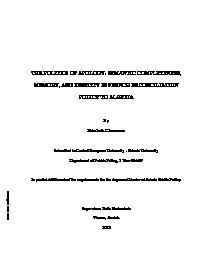The politics of apology : semantic completeness, memory, and identity in French reconciliation policy to Algeria
Political apologies are increasingly common between former colonizer and colonized nations, but remain contentious as a policy and ambiguous in effectiveness at easing disputes. Between France and Algeria, reconciliation and apologies are actively being pursued, yet bilateral tensions are still high. According to research, apologies must meet specific criteria to be accepted, including semantic completeness. Apologies may also have discourses of memory and identity that attempt to repaint the identity of the perpetrator more favorably.
This thesis thus aims to enhance understanding regarding the effectiveness of these apologies by examining the semantic completeness of apology discourses, memory discourse, and identity discourses from François Holland and Emmanuel Macron. The results indicate that the apology discourse is semantically incomplete, with acknowledgement of responsibility lacking in particular; that the president push for the idea of a singles, utopian historical 'truth" of the pat, which potentially conflicts with the Algerian perspective; and that France presents itself as a "bearer of values" whose identity was victimized in the war, These results provide an in-depth examination of complex apology discourses, helping to inform theories on how reconciliation and apology policies are constructed and their effects on bilateral relationships.
80 pagina's


